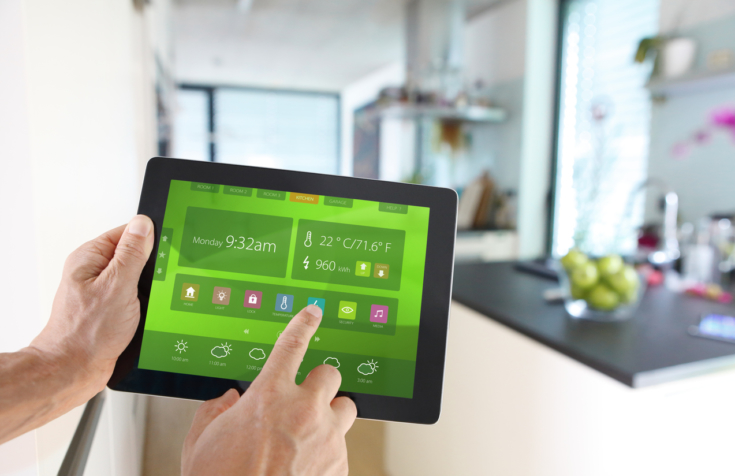Is home automation the smart move?
With the need for technology in our day to day lives growing, it is no surprise that Gartner predicts there will be approximately 25 billion IoT (Internet of Things) enabled devices in 2020; millions of which used to automate our homes. A smart home is defined as a home that can be automated and remotely controlled using a smart device or computer. This means that you can control elements such as lighting, heating and air conditioning, security and other household devices from a touch of a button.
With the expectation increasing for technology to provide seamless integration and faultless experiences, and the growing reliance for it to improve our everyday lives, it is clear why the market is steering into the direction of technology. With products such as the Amazon Echo entering the market, the demand for hands free technology is growing and the need for manual appliances will surely start to become obsolete.
It is unsurprising that 66% of the UK are interested by the concept according to Data Select, but what are the benefits of having one and do we need it. By automating your home it allows you to control the main functionalities of your home wherever you are, whether you are on holiday or at the office. Introducing your home to modern technology will enable you to access security cameras from your phone, time your lights and appliances to come on when you need them to, ensure you are not wasting more energy than required and check whether you’ve locked the front door or not. It is undeniable that there are endless benefits but do they outweigh the negatives?
According to PSR Centre these systems are bound to be expensive due to the new technology despite convenience. The initial cost for devices and installation can be extremely costly, although you do not need to purchase the ‘whole package’ in one go; a simple alternative is to adopt certain elements to help modernise your home. It is important to remember that unfortunately there is no such thing as a hack proof smart home and there will always be vulnerabilities. Another thing to consider is the maintenance and future software updates (if there are any). Then there’s the question of whether or not different brands will work seamlessly together or will you experience technical difficulties like we all seem to with our wireless printers? Considering many smart homes rely on wireless internet this could also cause problems and is something to take into consideration. If you broadband isn’t working will your house be left unsecure or unable to function? Though these are all things that a reliable supplier will have f considered and found solutions to, it is worth considering that with a change in the way we run our homes, will come a change in the problems we experience too, it is worth ensuring you do your research before parting with your money.
If adapting to a new technological environment doesn’t phase you, nor the initial or on-going costs, then a smart home solution may be for you. At Forays we like to focus on the build and beautiful aesthetics of the home but we are always looking for sustainable and affordable ways to improve our properties. We look forward to seeing where the world of smart homes takes the industry.





